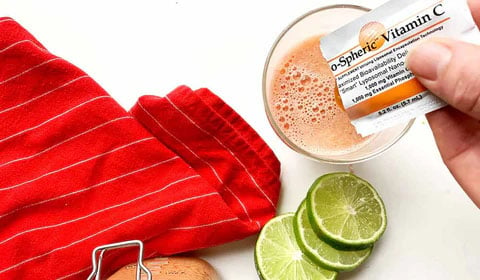Gluten and the Effects on Physical Performance
Updated Jul 13, 2018, Published Nov 01, 2017
This post contains affiliate links. Please see our disclosure policy.
A dialogue with world champion triathlete Lesley Paterson
Over the last several years, a number of world class athletes have reported a significant improvement in their endurance and physical performance after beginning a gluten-free diet. Some recognizable names include tennis player Novak Djokovic, Olympic gold medal swimmer Dana Vollmer, and top ranked pole vaulter Jenn Suhr. I had the unique opportunity to speak with Lesley Paterson, a professional triathlete and two-time XTERRA Offroad Triathlon World Champion, about how going gluten-free affected her performance and how it has attributed to her success. First, though, let’s take a quick look at how gluten affects the body and, more specifically, physical performance.
The Science
The beneficial effects of eliminating gluten to improve physical performance are not incidental. There are three main mechanisms which help to explain the “why.”
The first mechanism occurs during the digestion of gluten protein when small gluten peptides, known as exorphins, are produced. When exorphins penetrate through the blood-brain barrier and interact with brain nerve cells, they behave much like narcotics and result in attention deficit, fatigue, mood swings, and miscommunication between your brain and muscles. The production of exorphins upon gluten consumption does not depend upon a person’s genetic makeup. It happens to everyone. Therefore, any person can improve his/her performance through avoiding gluten.
The second mechanism is based on the fact that gluten can initiate a cascade of inflammatory reactions leading to joint and muscle pain, joint stiffness, swelling, chronic fatigue, and muscle weakness. This ailment process is mediated through interactions of gluten peptides with specific receptors on immune cells, HLA DQ2.5 and HLA DQ8.1. Since the presence
of HLA DQ2.5 and HLA DQ8.1 is genetically mediated, this mechanism takes place predominantly in individuals carrying the corresponding genes.
The third mechanism is gluten-attributed malabsorption of vitamins, minerals, and other vital nutrients. Malabsorption can result in significant impairment of muscle performance and contribute to muscle fatigue and weakness.
Dr. Shikhman: Given these mechanisms, did you experience any of these symptoms prior to going gluten free?
Lesley Paterson: I had major malabsorption problems. Because I put my body through such a physically demanding schedule, my iron and B12 levels were really low. I had major chronic fatigue, muscle soreness, and flu-like symptoms. My brain fog was super frustrating! My brain just wasn’t sharp. I couldn’t recall words and names. It felt like I was living in a haze…I just didn’t feel right.
Dr. S: And how did your body respond after eliminating gluten?
LP: I went cold turkey and followed a strict gluten-free diet. You have to; you can’t be gluten-free when you want to be. But the rewards are completely worth it. My energy level responded immediately. Within two months I noticeably felt better: my fatigue eased, I was thinkin more clearly, I was able to push myself more. I was feeling back to my old self. I also believe the longer you are on the diet, you progressively get better. I’ve been on the diet for 14 months now and I’m firing on all cylinders. It has had a profound effect on my mind and body. It has allowed my body to function at a higher level, I can perform better for longer stretches, and I’m just feeling good in general.
Gluten & The Endocrine System
Gluten intolerance has a profound effect on various body systems and body functions. In particular, our endocrine system is a common target for this pathological process. People suffering from gluten intolerance have increased frequency of thyroid disorders, disorders of pancreatic function, and impaired glucose metabolism causing diabetes as well as suboptimal function of the adrenal system, causing inadequate stress responses. As a consequence, these endocrine abnormalities can have negative effects on physical performance.
Dr. S: In the past, you have mentioned the overwhelming amount of stress and anxiety you had prior to a race. Can you describe for me what you were experiencing?
LP: Yes! It wasn’t just immediately before a race. It was even in my training leading up to a race. I had diarrhea, negative thoughts, and nervousness. I felt like I could’ access my power—that I was racing with a block. It was incredibly frustrating and defeating. Now most of that has gone away and I have a healthy amount of nervousness.
The Healing Process
The correction of gluten-driven metabolic, inflammatory, and endocrine abnormalities is a multi-step process where eliminating gluten is a mandatory requirement. The other components of healing include restoration of intestinal gut microflora, treatment of leaky gut syndrome, and correction of vitamin and mineral deficiencies (such as iron, vitamin B12, CoQ10, carnitine, etc). Typically, this is achieved with the help of specific probiotics, prebiotics, herbs, and other food supplements.
Dr. S: How have dietary supplements played a role in your success?
LP: My energy level increased right away. I take rhodiola and eleutherococcus, both adaptogens that help my body deal with stress due to physical and biological stressors. My intestinal tract was pretty messed up from years of gluten intake so that took a bit longer to heal. A good probiotic definitely helped. Just like the diet, I feel like the longer I’m on supplements, I progressively get better and can function at a higher capacity.
Dr. S: Finally, from your personal experience, what is your advice for someone who is struggling with the gluten-free lifestyle or isn’t seeing results they want?
LP: Patience! It can take quite a while for your body to start functioning regularly. It’s a progressive build. If you are strict on the diet (no cheating), take the right supplements, and be an advocate for your health, your vitality and joy for life will come back. I am like a test tube for what is possible—I push my immune system to the limit everyday. If I can go through the struggles and be the best, you can do it and be your best!
As demonstrated by Lesley, gluten has a measurable effect on physical performance via numerous mechanisms. Introduction of gluten-free and other food-specific elimination diets in combination with appropriate nutraceuticals represents a very efficient way to achieve optimal physical fitness














